The Lithuanian Small and Middle Sized Enterprise Council, the Association of Lithuanian Trade Companies and the Lithuanian Real Estate Development Association have signed a business solidarity memorandum and call upon the government to approve the Ministry of Economics and Innovation proposed and approved by the ministerial cabinet conception for compensating rent costs. According to business organisations, rent subsidies, just as other business support measures such as tax postponement or aid in maintaining jobs should be applied in solidarity.
The signatory organisations agree:
The rent cost compensation subsidy is primarily supporting businesses directly suffering from the COVID-19 quarantine, namely tenants. Fixed costs, a significant part of which is comprised of premise rent costs, is a heavy burden on businesses, which have been impacted by the quarantine restrictions and lost their operations turnover.
- We propose that as per the conception approved in an April 15 cabinet meeting, the outlined state support – a 50% rent cost subsidy would go directly to the tenant. It is likely that due to the large number of recipient subjects, this will cause further administrative challenges to both state institutions and tenants themselves, however this will best reflect the goals set through this business stimulus model and will thus not mislead or impose doubts on the final recipient of benefits.
- We make the commitment that under solidarity in government subsidies for premise rent for all business under restrictions imposed due to the quarantine, the Lithuanian Real Estate Development Association’s companies, which lease various commercial purpose premises, will offer tenants matching support conditions a 30% discount to rent costs for the period of the subsidy being in place through an individual bilateral agreement, while given a justified need and in order to maintain vitality in operations, the discount could be even greater.
- We note that the government subsidy is crucial for ensuring business continuity and sustainability and due to the economic cycle and tax payment procedures, we believe that at least half of the allocated support will immediately return to the government and municipal budgets through income, profit, property, as well as other taxes. The support will ensure continuity of operations and retention of jobs within a broad range of business segments.
- We emphasise that business solidarity should be encouraged without looking to migrate risk from one sector to another, evaluating the entire business chain and should be viewed as the main model to endure the economic blow caused by the quarantine.
“Support recipients are not the lessors, but the tenants. All trade companies, both big and small, are currently facing the same challenges. In many cases, these challenges weigh down on the major retailers far more heavily – they must retain far more staff, their financial commitments are also far larger. Without government support, such a burden could bring down even the largest and together with them – the entire economy. Rent payments are currently a large part of the financial burden faced by businesses. As such, we propose to adhere to the principle of horizontal support so that at least in part, this burden would be lifted from the shoulders of all retailers. The essence of the support is to help retail sector companies, which rent premises, to survive this difficult period,” Rūta Vainienė, the Lithuanian Trade Company Association’s executive director said about the essential meaning of the subsidy for retail premise rent.
According to her, during the quarantine, retailers that deal in non-food products are in a particularly unfavourable situation – they receive either no or almost no more income, while their financial commitments have remained the same. Rent costs, especially for the major retailers, comprise a significant part of their financial commitments alongside utility and other service costs.
The Lithuanian Trade Company Association reminds that the retail sector is one of the largest taxpayers and employers in Lithuania – the sector employs around 106 thousand staff. The major retailers pay a significant amount of tax and employ numerous employees.
Lithuanian Small and Medium Size Enterprise Council head Dalia Matukienė points out that a large part of small businesses had to limit or completely cease operating during the quarantine, however their financial commitments, rent included, have remained unchanged. As such, entering the sixth week of quarantine, the pace of aid becomes a crucial factor in order to support businesses.
“It is equally crucial for all businesses’ vitality to be secured, thus today, particularly for small and medium-sized enterprises, which do not receive income due to operations restrictions, speed is of the essence. The government approved rent cost compensation conception would help more effectively than other measures to inject funds into the economy, compensating business costs for the small [businesses],” D. Matukienė says.
According to Mindaugas Statulevičius, the head of another signatory, the Lithuanian Real Estate Development Association, the association’s lessors have committed to offering rent discounts to tenants, who have lost their incomes due to the quarantine.
“The real estate developers are prepared to offer a 30% discount for rent costs in corpore and hope that the government will maintain solidarity with Lithuanian businesses in an understanding that the equivalent support for all quarantine-struck sectors will lead to more rapid recovery and better possibilities to retain jobs. Real estate lessors, just as all other businesses, face similar challenges: commitments to staff, financial institutions and the state and these commitments are not terminated during the quarantine, while the lessors still face the risk of insolvency just as other businesses,” M. Statulevičius says.
